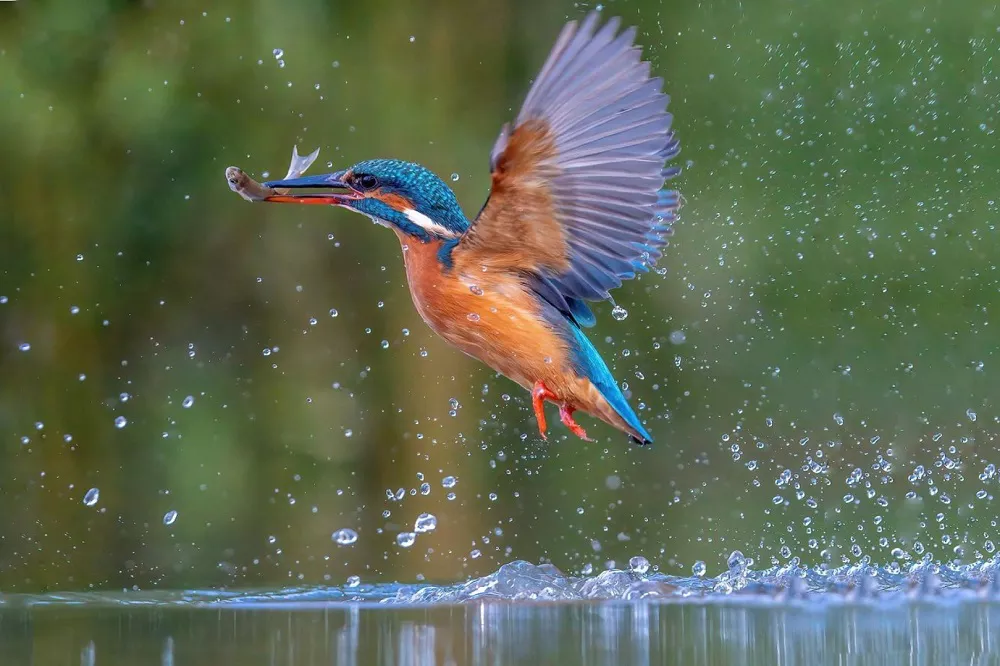Kingfishers are a group of birds that are known for their vibrant colors and remarkable fishing abilities. There are about 90 species of kingfishers, found in various parts of the world, including North America, Europe, Africa, and Asia. These birds are primarily carnivorous and consume a variety of prey, including fish, crustaceans, insects, and small amphibians.
Fish is the primary food source for most kingfishers. These birds have an impressive ability to dive into the water to catch fish, often from a perch above the water’s surface. Kingfishers are equipped with sharp, pointed beaks that are designed to pierce through the scales and flesh of fish. They also have long, pointed bills that are ideal for grabbing and holding onto slippery fish.
In addition to fish, kingfishers also eat a variety of crustaceans, including crayfish, crabs, and shrimp. These small creatures are found in bodies of freshwater and saltwater and are often easy targets for kingfishers. The birds will use their bills to pry open the shells of these crustaceans to get to the meat inside.
Kingfishers are also known to eat insects, such as dragonflies, grasshoppers, and beetles. These birds are capable of catching insects in mid-air or snatching them off of vegetation. Insects are an important food source for kingfishers, especially during times when fish are scarce.
Finally, kingfishers will also consume small amphibians, such as frogs and tadpoles. These creatures are typically found near bodies of water, making them easy prey for kingfishers. The birds will use their sharp beaks to grasp the amphibians and swallow them whole.
It’s worth noting that different species of kingfishers may have slightly different diets depending on their habitat and geographical location. For example, some species may specialize in eating certain types of fish, while others may focus more on insects or crustaceans.
In conclusion, kingfishers are carnivorous birds that primarily consume fish, crustaceans, insects, and small amphibians. These birds have adapted to a variety of habitats and have developed specialized beaks and hunting techniques to catch their prey. Despite their relatively small size, kingfishers are impressive predators and an important part of many ecosystems around the world.


 Facebook
Facebook  Instagram
Instagram  Youtube
Youtube 